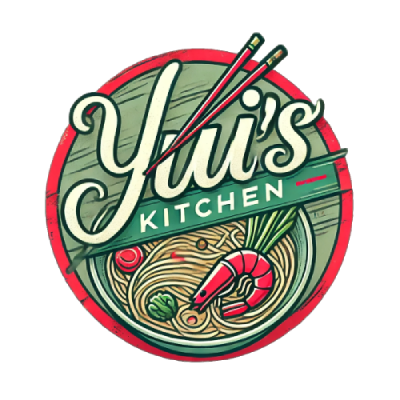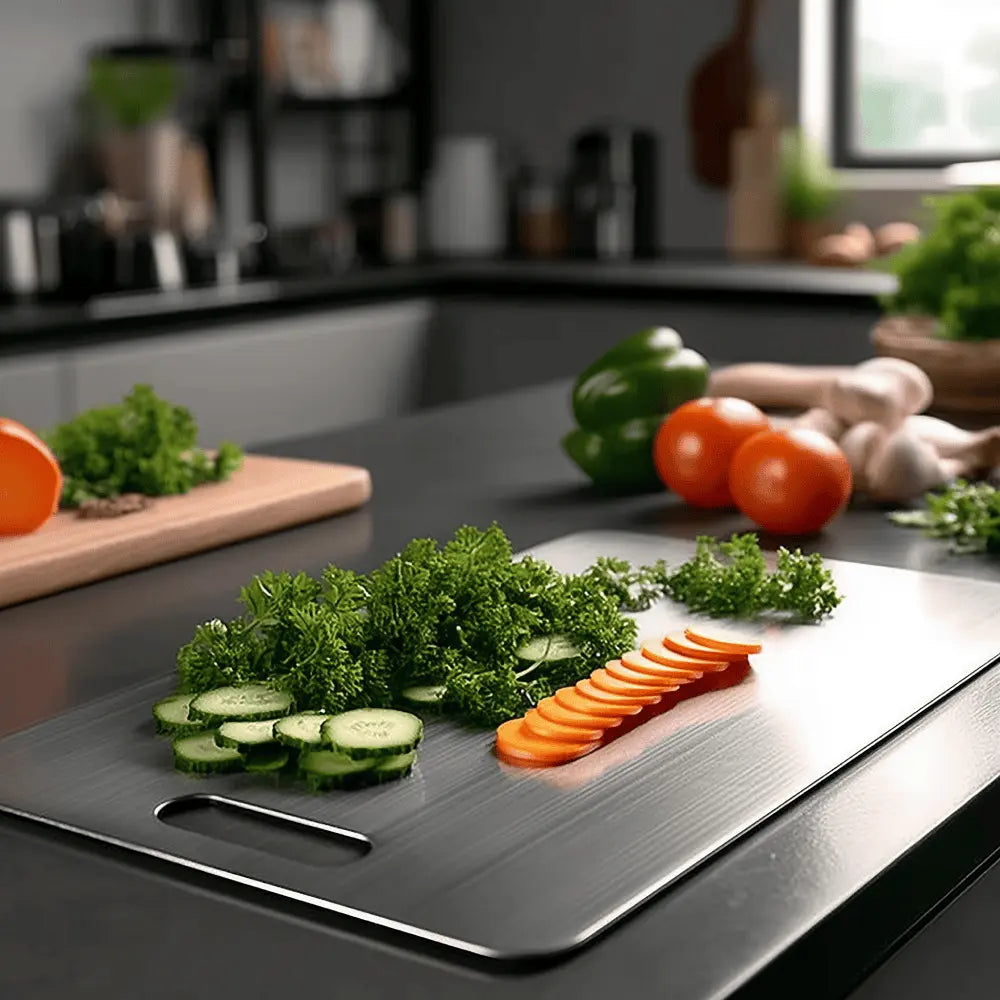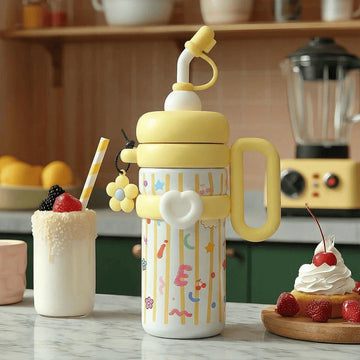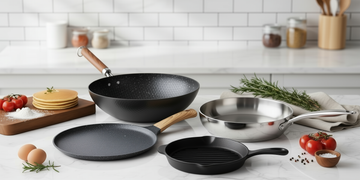Elevate Your Kitchen: The Ultimate Guide to Stainless Steel and Titanium Chopping Boards
In the heart of every kitchen, the chopping board is an unsung hero, a foundational tool that sees daily action. Yet, often overlooked, its material and quality can significantly impact not only your food preparation efficiency but also hygiene and knife longevity. While traditional wood and plastic boards have long dominated the market, a new generation of advanced metal chopping boards—crafted from stainless steel and titanium—is revolutionising kitchen hygiene and performance.
These sleek, modern alternatives offer a compelling blend of durability, antibacterial properties, and ease of maintenance that traditional materials simply can't match. But with two powerful contenders, stainless steel and titanium, how do you choose the best metal chopping board for your culinary needs? And how can these innovative surfaces enhance your cooking experience while keeping your kitchen exceptionally clean?
This comprehensive guide will delve into the world of stainless steel and titanium chopping boards, exploring their unique benefits, addressing common concerns like knife dulling, and providing insights to help you make an informed decision. Get ready to discover how upgrading your chopping board can transform your kitchen into a more hygienic, efficient, and professional space.
Why Upgrade Your Chopping Board? Beyond the Basics
For years, plastic and wooden chopping boards have been the go-to choices for home cooks. They are affordable and readily available, but they come with significant drawbacks that can compromise kitchen hygiene and food safety. Both plastic and wood are porous materials, meaning they can absorb liquids, odours, and, most critically, harbour bacteria within their knife-scarred surfaces. Over time, these grooves become breeding grounds for pathogens, even with diligent cleaning, posing a risk of cross-contamination.
Furthermore, plastic boards can degrade, shedding microplastics into your food, while wooden boards require meticulous maintenance to prevent warping, cracking, and bacterial growth. The constant battle against stains, odours, and the invisible threat of bacteria makes these traditional options less than ideal for a truly hygienic kitchen.
This is where metal chopping boards, particularly those made from stainless steel and titanium, offer a superior solution. Their non-porous nature fundamentally changes the game, providing a surface that is inherently more hygienic, easier to clean, and significantly more durable. Upgrading to a metal chopping board isn't just about aesthetics; it's an investment in food safety, kitchen efficiency, and peace of mind.
Stainless Steel Chopping Boards: The Hygienic Workhorse
When it comes to kitchen hygiene, stainless steel chopping boards stand out as a true workhorse. Their popularity stems from a combination of practical benefits that address many of the shortcomings of traditional cutting surfaces. If you're searching for an antibacterial cutting board stainless steel option, you're on the right track.
Key Benefits of Stainless Steel Chopping Boards:
- Non-Porous Surface: Unlike wood or plastic, stainless steel is completely non-porous. This means there are no microscopic crevices for bacteria, food particles, or liquids to seep into and hide. This inherent quality makes them exceptionally hygienic and easy to sanitise, a crucial factor for food safety.
- Antibacterial Properties: While not actively killing bacteria, the non-porous nature of stainless steel prevents bacterial growth and absorption. This makes them a naturally hygienic cutting board metal choice, significantly reducing the risk of cross-contamination, especially when handling raw meats and vegetables.
- Easy to Clean: Cleaning a stainless steel chopping board is remarkably simple. A quick wash with soap and hot water is usually sufficient to remove food residues. For deeper cleaning, they can often be put in the dishwasher, ensuring thorough sanitisation without special care requirements.
- Durable and Long-Lasting: Stainless steel is renowned for its strength and resistance to corrosion, rust, and staining. A well-maintained stainless steel chopping board can last a lifetime, enduring countless chopping, slicing, and dicing tasks without warping, cracking, or degrading.
- Resistant to Stains and Odours: Because they don't absorb liquids or food particles, stainless steel boards are highly resistant to staining and retaining odours from strong-smelling ingredients like garlic or onions. This keeps your kitchen smelling fresh and your board looking pristine.
For those prioritising cleanliness and longevity, a stainless steel chopping board offers a robust and reliable solution that keeps your food preparation area safe and sanitary. These boards are an excellent choice for any home cook looking for stainless steel chopping board benefits that truly make a difference.
Titanium Chopping Boards: The Lightweight, Premium Choice
Stepping into the realm of premium kitchenware, titanium chopping boards offer an elevated experience, building upon many of the advantages of stainless steel while introducing their own unique benefits. Often sought after for their superior strength-to-weight ratio, titanium boards are a testament to advanced material science in the kitchen. If you're looking for titanium chopping board advantages, you'll find them in abundance here.
Key Benefits of Titanium Chopping Boards:
- Lighter than Stainless Steel: One of titanium's most celebrated properties is its incredible lightness. A titanium chopping board will be noticeably lighter than a comparable stainless steel board, making it easier to handle, move, and store, especially for larger sizes. This is a significant advantage for those who frequently move their cutting surface or have limited counter space.
- Extremely Durable and Non-Corrosive: Titanium is renowned for its exceptional strength and resistance to corrosion, even more so than many grades of stainless steel. It is virtually impervious to rust, acids, and alkalis, ensuring a board that will maintain its integrity and appearance for decades, even under heavy use.
- Non-Porous and Antibacterial: Like stainless steel, titanium boasts a completely non-porous surface. This characteristic is fundamental to its hygiene, as it prevents the absorption of liquids, food particles, and bacteria. This makes titanium an inherently antibacterial cutting board material, contributing to a safer and cleaner food preparation environment.
- Biocompatible: Titanium is a biocompatible metal, meaning it is non-toxic and does not react with food or leach any substances, even when scratched. This provides an extra layer of assurance for health-conscious cooks.
- Titanium chopping boards represent the pinnacle of metal cutting surfaces, offering a premium chopping board titanium experience that combines cutting-edge material science with unparalleled hygiene and durability. They are an investment for the discerning chef who values both performance and a lightweight, sophisticated tool.
Stainless Steel vs. Titanium: Which is Right for You?
Choosing between a stainless steel and a titanium chopping board ultimately comes down to your specific priorities and budget. Both offer significant advantages over traditional materials, particularly in terms of hygiene and durability. However, there are subtle differences that might sway your decision. Here's a comparison to help you decide which metal chopping board best suits your kitchen.
|
Feature
|
Stainless Steel Chopping Board
|
Titanium Chopping Board
|
|
Weight
|
Heavier, providing a very stable cutting surface.
|
Significantly lighter, easier to handle and store.
|
|
Durability
|
Extremely durable, resistant to corrosion, rust, and stains.
|
Even more durable and corrosion-resistant, virtually indestructible.
|
|
Knife-Friendliness
|
It can be harder on knife edges than wood/plastic; it requires good knife skills and frequent sharpening.
|
Generally harder than stainless steel, potentially dulling knives faster.
|
|
Hygiene
|
Non-porous, antibacterial, very easy to clean and sanitise.
|
Non-porous, antibacterial, excellent hygiene properties.
|
|
Price
|
More affordable, offering excellent value for money.
|
Premium price point, reflecting its advanced material properties.
|
|
Aesthetics
|
Classic, professional, and sleek appearance.
|
Often has a slightly darker, more matte finish; very modern and high-tech.
|
For most home cooks, a high-quality stainless steel chopping board offers an exceptional balance of hygiene, durability, and value. It's a robust upgrade that will serve your kitchen well for many years. However, if you prioritise the absolute lightest weight, unparalleled corrosion resistance, and are willing to invest in a premium product, then a titanium chopping board might be the ultimate choice for your culinary space. Both options represent a significant step forward in kitchen sanitation and efficiency compared to porous alternatives.
Knife Care on Metal Boards: Addressing the Dulling Concern
One of the most common concerns when considering a metal chopping board is its impact on knife edges. It's true that both stainless steel and titanium are harder materials than wood or plastic, and as such, they can potentially dull knife blades more quickly if not used correctly. However, this concern can be easily mitigated with proper technique and understanding.
Firstly, it's important to use a sharp knife. A dull knife requires more force, increasing the likelihood of it slipping or digging into the board, which can accelerate dulling. Regularly sharpening your knives is a good practice regardless of your chopping board material, but it becomes even more important with metal boards.
Secondly, focus on your cutting technique. Instead of chopping straight down with excessive force, aim for a slicing or rocking motion. This reduces the direct impact on the blade's edge against the hard surface. Many professional chefs use a technique where the knife blade is drawn across the food rather than pushed straight down, minimising contact with the board itself.
Finally, consider the type of knives you use. While high-carbon steel knives can hold an edge exceptionally well, they can also be more brittle. Softer steel knives might dull faster but are less prone to chipping. Ultimately, with mindful cutting practices and consistent knife maintenance, the benefits of a hygienic metal chopping board far outweigh the minor adjustment in knife care. Don't let the metal cutting board knife dulling myth deter you from a cleaner kitchen; cleaner kitchen.
The Antibacterial Advantage: A Closer Look at Food Safety
The primary driver behind the growing popularity of stainless steel and titanium chopping boards is their unparalleled contribution to kitchen hygiene and food safety. The term "antibacterial" in this context refers to their ability to significantly reduce the environment where bacteria can thrive, rather than actively killing them through chemical means.
Traditional chopping boards, whether wood or plastic, are inherently porous. Every cut from a knife creates tiny grooves and scratches on their surface. These imperfections act as microscopic traps, capturing food particles, moisture, and, crucially, bacteria. Even after washing, these pathogens can remain embedded within the material, multiplying and potentially leading to cross-contamination when different foods are prepared on the same surface.
Metal chopping boards, however, possess a completely non-porous surface. This smooth, impenetrable barrier means there are no hidden nooks or crannies for bacteria to colonise. Food residues and liquids simply sit on the surface, making them incredibly easy to clean and sanitise effectively. A thorough wash with soap and hot water, or a cycle in the dishwasher, is usually sufficient to remove all contaminants, leaving a truly clean surface.
This non-porous nature is the core of their antibacterial cutting board advantage. By preventing the absorption and retention of bacteria, stainless steel and titanium boards drastically reduce the risk of foodborne illnesses, making them a superior choice for maintaining food safety standards in any kitchen. This fundamental difference is what makes metal chopping boards a game-changer for health-conscious cooks and professional chefs alike.
Product Spotlight: Yui's Kitchen Stainless Steel Antibacterial Cutting Board
For those ready to experience the superior hygiene and durability of metal chopping boards, we highly recommend the Yui's Kitchen Stainless Steel Antibacterial Cutting Board. This exceptional product embodies all the benefits discussed in this guide, offering a premium solution for your kitchen.
Crafted from high-quality stainless steel, this cutting board provides a perfectly smooth, non-porous surface that is inherently antibacterial and incredibly easy to clean. Its robust construction ensures longevity, resisting stains, odours, and the wear and tear of daily use.
Designed for both functionality and aesthetics, it seamlessly integrates into any modern kitchen, providing a hygienic and durable foundation for all your food preparation needs. Elevate your cooking and ensure the highest standards of cleanliness with this outstanding Yui's Kitchen cutting board.
Conclusion: Invest in Your Kitchen's Future
Choosing the right chopping board is more than just a minor kitchen decision; it's an investment in your health, your culinary efficiency, and the longevity of your kitchen tools. Stainless steel and titanium chopping boards represent a significant leap forward from traditional materials, offering unparalleled hygiene, durability, and ease of maintenance.
By opting for a non-porous metal surface, you effectively eliminate the breeding grounds for bacteria, ensuring a safer food preparation environment for you and your family. While both materials offer exceptional benefits, stainless steel provides a fantastic balance of performance and value, while titanium offers a premium, lightweight alternative for those seeking the ultimate in durability and sophistication.
Embrace the future of kitchen hygiene and elevate your cooking experience. Whether you choose the robust reliability of stainless steel or the advanced lightness of titanium, investing in a high-quality metal chopping board is a decision that will pay dividends in cleanliness, efficiency, and peace of mind for years to come. Make the switch today and discover the transformative power of a truly hygienic cutting surface.




